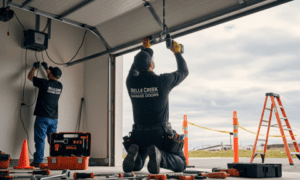Are you ready to embark on a transformative journey? A quest that delves deep into the heart of what it truly means to improve your home? Look no further, because we are about to uncover the essence of home improvement like never before. In this captivating blog post, we will explore beyond simple renovations and decor upgrades, peeling back the layers to reveal the true significance behind creating your dream sanctuary. Get ready to be inspired and enlightened as we dive headfirst into an exploration of what it really means to turn a house into a home.
Introduction
Home improvement is a term that has gained popularity in recent years as people have become more aware of the importance of creating a comfortable and welcoming living space. But what exactly does home improvement mean? Is it just about renovating and decorating your house, or is there more to it than meets the eye?
The concept of home improvement goes beyond just enhancing the physical appearance of your living space. It encompasses various aspects that contribute to making a house feel like a home. From creating an inviting atmosphere to increasing functionality and comfort, home improvement is all about making your house a better place to live.
At its core, home improvement refers to any changes or upgrades made to one’s residence in order to enhance its overall value and livability. This can range from minor cosmetic updates, such as painting walls or replacing fixtures, to major renovations, like adding an extra room or completely remodeling the kitchen.
But it’s not just about increasing property value or following design trends. Home improvement can also involve improving the efficiency and functionality of your living space by incorporating smart technology, energy-saving features, and other modern advancements.
Defining Home Improvement: What Does It Truly Mean?
Home improvement is a term that we often hear and use in our daily lives. From home renovation shows to magazines and articles, the concept of improving our living spaces is constantly present. But what does it really mean? Is home improvement just about aesthetics, or does it encompass more than just changing the appearance of our homes?
At its core, home improvement refers to any project or activity that aims to enhance or upgrade one’s residential property. This can include renovations, repairs, maintenance, and even simple changes such as rearranging furniture or adding new decorations. The goal of home improvement is to make your living space more functional, comfortable, and visually appealing.
However, beyond these basic definitions lies a deeper meaning of home improvement—one that goes beyond the physical aspect of our homes.
a. Creating a Space for Growth
Our homes are not just structures made up of walls and roofs; they are where we spend most of our time with loved ones, relax after a long day at work, and create memories. It is a place where we should feel safe, secure, and at peace. Therefore, the true essence of home improvement lies in creating a space that supports personal growth and well-being.
This means addressing issues within our homes that may hinder us from fully enjoying them. For example, if you have an outdated kitchen layout that makes cooking difficult or lack proper storage space, this can cause cluttered living areas. These issues can affect your quality of life at home. By improving these aspects, you are not just enhancing the physical appearance of your home but also creating a more functional and efficient space for yourself and your family.
b. Investing in Your Property
Home improvement is also considered a form of investment. By upgrading and maintaining your property, you are increasing its value and potential resale value in the future. This can be especially beneficial if you plan on selling your house or renting it out. Making strategic improvements can also help attract potential buyers or tenants, as well as justify a higher asking price.
c. Saving Money in the Long Run
While home improvement projects may require an initial investment, they can also save you money in the long run. For example, replacing old windows with energy-efficient ones can lower your utility bills, or fixing a leaky roof can prevent further damage and costly repairs down the line.
In addition, certain home improvements may qualify for tax deductions or credits, providing financial benefits for homeowners.
d. Improving the Quality of Life
Ultimately, home improvement is about improving our quality of life. A well-maintained and comfortable living space can contribute to our overall well-being and happiness. It can also create a sense of pride and accomplishment in homeowners.
Whether it involves making small changes or undertaking major renovations, home improvement is an ongoing process that allows us to continually improve and personalize our living spaces.
Challenges and Considerations
Home improvement projects can bring many benefits to your home, from improving its aesthetic appeal to increasing its value. However, these projects also come with their fair share of challenges and considerations. In this section, we will discuss three important aspects that homeowners must keep in mind when embarking on a home improvement journey: budgeting, time management, and hiring professionals.
Budgeting is one of the most crucial factors to consider before starting any home improvement project. It’s essential to have a clear understanding of your financial limitations and set a realistic budget for your project. One common mistake that homeowners make is underestimating the cost of materials and labor, leading to unexpected expenses down the line. To avoid this, research the average costs of similar projects in your area and add a buffer for any unforeseen expenses.
Another challenge with budgeting is deciding where to allocate funds within the project. It would be best if you prioritized essential components, such as structural repairs or safety upgrades, over purely cosmetic changes. This way, even if you go over budget or encounter unexpected costs, you can still ensure that your home’s core functions are taken care of.
Time management is another critical consideration when it comes to home improvement projects. Many homeowners underestimate the amount of time it takes to complete a project successfully. It’s crucial to plan out each step of the project carefully and give yourself enough time for each task. Otherwise, rushing through tasks could lead to subpar workmanship or costly mistakes.
Conclusion
Home improvements are more than just superficial changes or upgrades to a physical space. They represent a deeper understanding and appreciation of what truly makes a house a home. Through the process of renovating, remodeling, or redesigning, homeowners have the opportunity to uncover the essence of their living space and create a meaningful connection to it.































